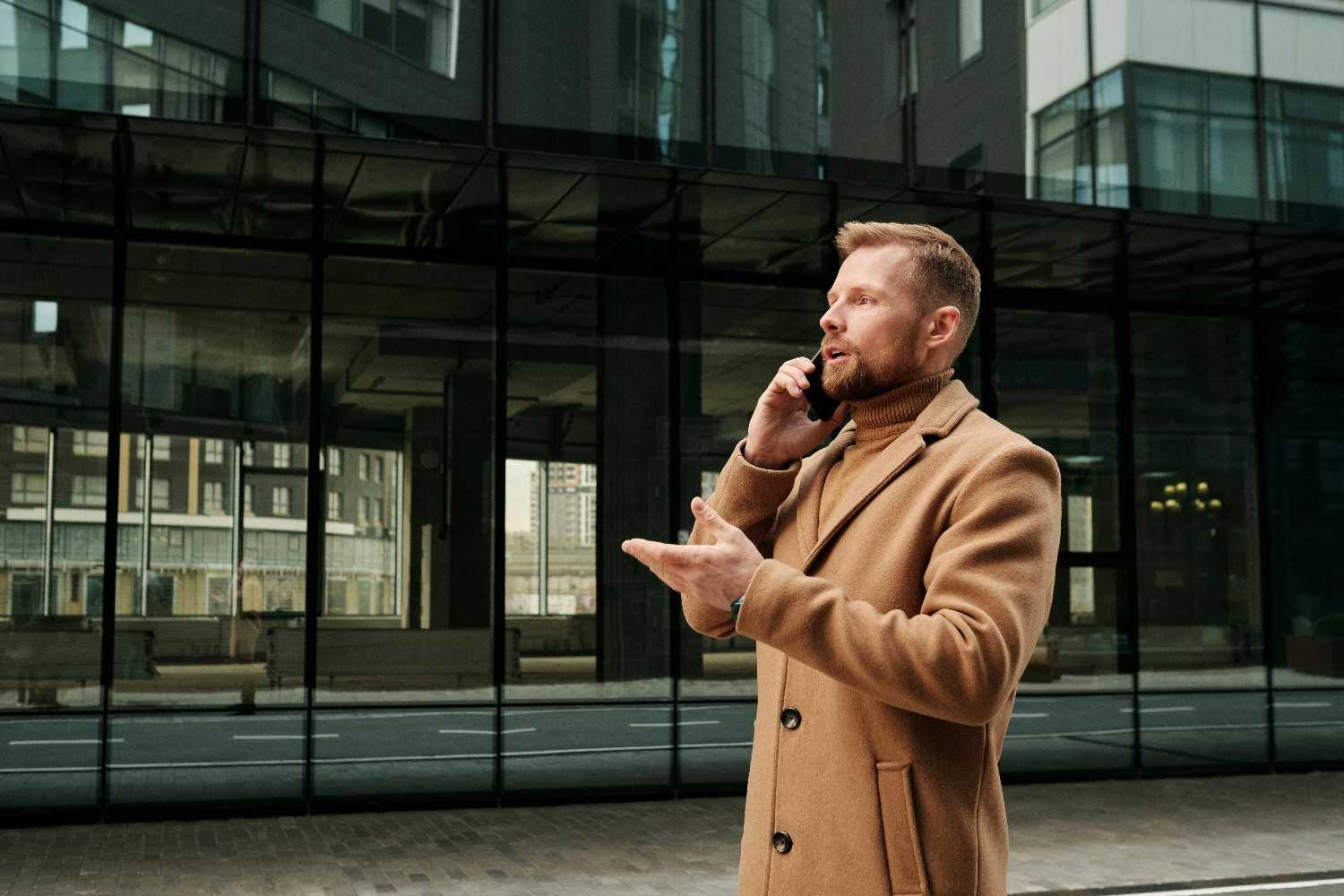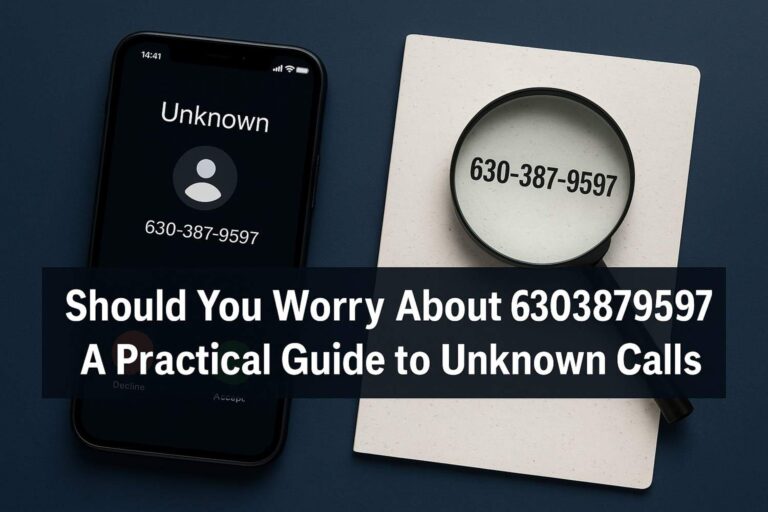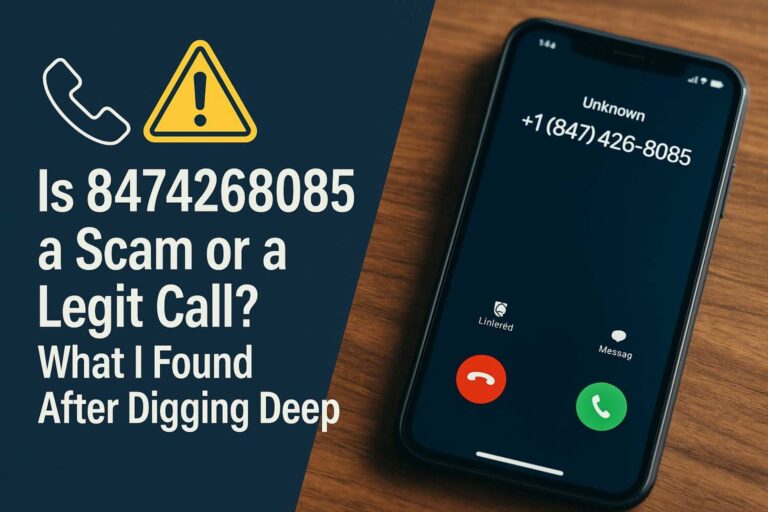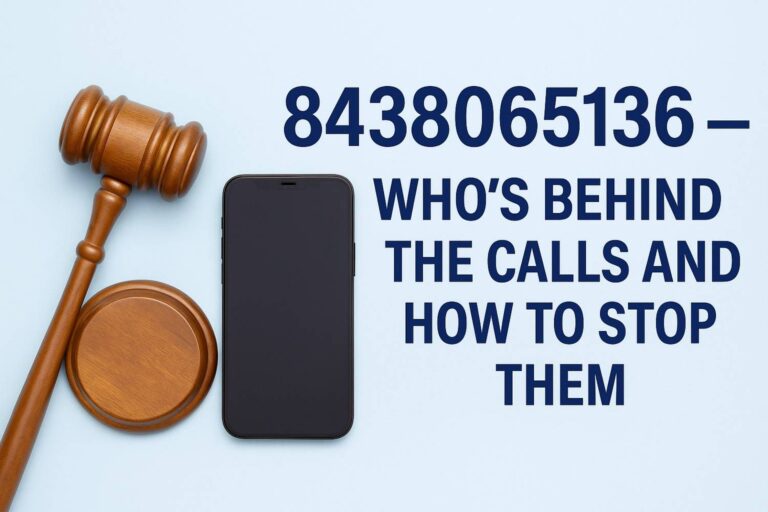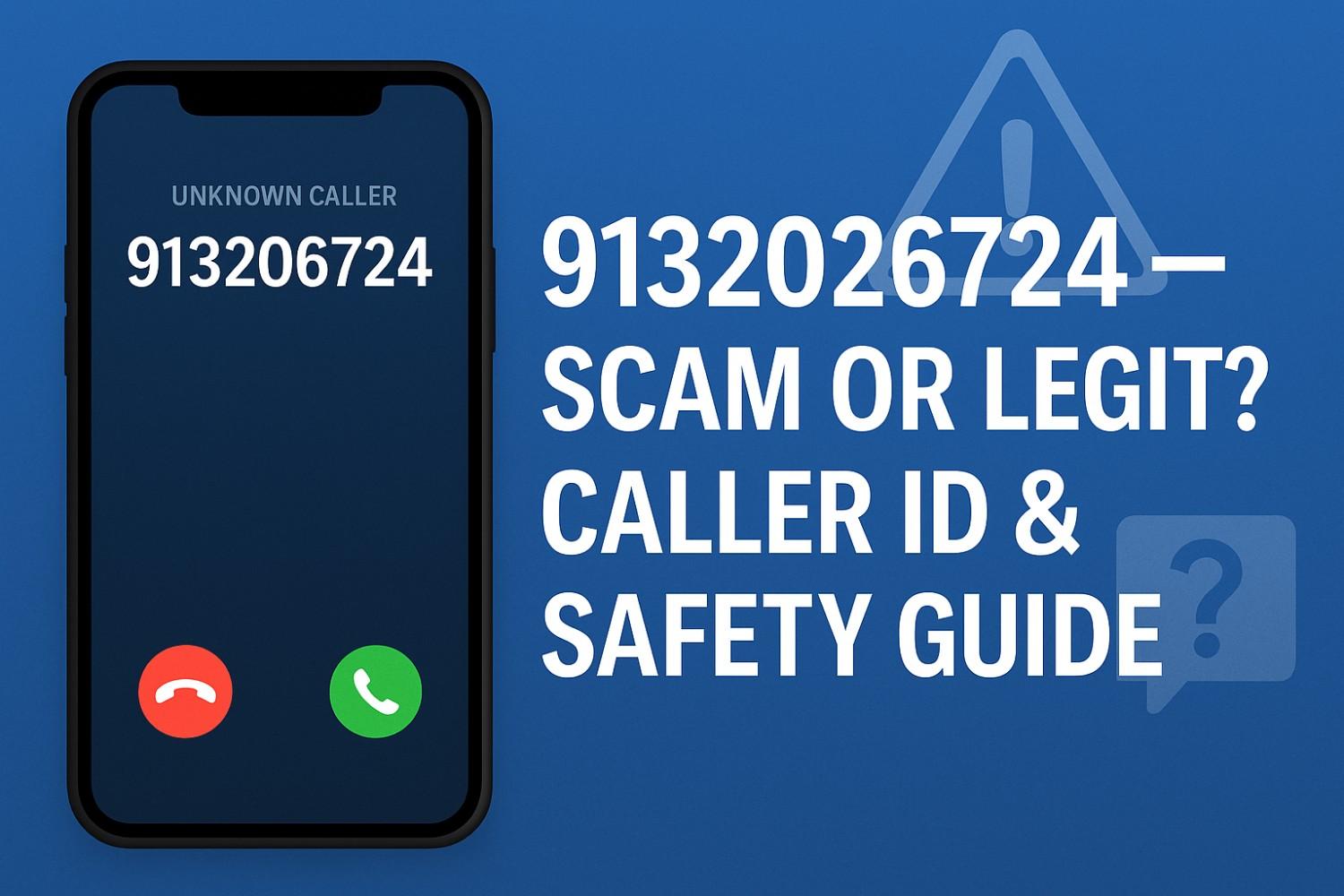
I still remember the first time I saw 9132026724 flash on my phone screen. It was a random weekday morning, and I almost picked it up, thinking it might be work-related. But something in me hesitated. The area code looked familiar—Kansas, maybe?—yet I couldn’t place it. A few hours later, the same number rang again. That’s when curiosity took over, and I started digging into what this number really was and why so many people were talking about it online.
If you’ve also been wondering about calls from 9132026724, you’re not alone. Whether it’s a robocall, telemarketer, or possibly a scam attempt, understanding the origin and risk level of this number can help you make the right decision the next time it pops up. In this post, I’ll share everything I learned—from where it’s coming from to whether it’s safe, how to deal with it, and how to protect yourself from similar calls.
What is 9132026724 and where is it from?
The number uses the 913 area code, which serves parts of Kansas, including the Kansas City metro and Olathe. Reverse-lookup communities regularly classify 913 as a Kansas code, and user reports for this exact number exist on several directories.
On major call-reporting sites, 913-202-6724 shows mixed signals:
- RoboKiller flags it as “Scam,” showing thousands of detected calls and recent activity.
- YouMail currently marks a “Low Risk Detected” label for the same number. Differences like this are common because each app uses its own data sources and thresholds.
- Community logs (like CallFilter and 800notes) include user comments describing robocalls and “financial services” pitches. Treat anecdotal reports as signals—not proof.
Is 9132026724 a scam or a legitimate caller?
Short answer: you should be cautious. RoboKiller’s classification plus community posts suggest unwanted or automated outreach, but not every call from any number is automatically fraudulent (spoofing exists, and labels change with new data). The safest approach is to let unknown calls go to voicemail and verify the caller independently (via an official website or a known customer portal) before you engage.
Zooming out, fraud trends in the U.S. are getting costlier, even as call complaint volumes fluctuate. The FTC says consumers reported $12.5B in fraud losses in 2024, with imposter and investment scams leading the pack. That context is why treating unexpected calls—especially those requesting money, gift cards, crypto, or remote access—with a healthy dose of skepticism is smart.
How can I tell if a call from 9132026724 is safe?
Ask yourself a few quick questions while the call is ringing (or after a voicemail):
- Were you expecting it? Unsolicited “urgent” calls are a red flag—especially if they pressure you to act fast.
- Are they asking for payment or sensitive data? Government, banks, and legit services won’t demand payment via gift cards, crypto, or peer-to-peer apps.
- Can you verify through official channels? Hang up, look up the company’s real number, and call back. Never trust a call-back number given by the caller.
If the call claims to be “customer support,” independently check the company’s verified website or app. Don’t rely on what the caller reads to you.

What should I do right now about 9132026724?
- Let unknown calls go to voicemail. Save the recording as evidence if it sounds suspicious.
- Use your carrier’s filters. Most major carriers and call-blocking apps can label or block high-risk calls automatically. (T-Mobile users can dial #662# to enable Scam ID/Block.)
- Block & report the number in your phone and in a reputable app (RoboKiller, YouMail, your carrier app). More reports improve future labeling.
- Report scams to the FTC at ReportFraud.ftc.gov—this helps enforcement and public data that protects others.
Could 9132026724 be spoofed?
Absolutely. Scammers often spoof local area codes (like 913) to boost answer rates. If a caller “knows” some of your info, that doesn’t prove legitimacy—much of it could be scraped from breaches or public records. When in doubt, hang up and call a verified number for the supposed organization.
FAQs about 9132026724
1. Is it safe to call 9132026724 back?
I wouldn’t. If the caller is legit, they’ll leave a clear voicemail with a company name you can verify on your own. Calling back can confirm your number is active and trigger more spam. Instead, look up the company’s official number and initiate contact yourself.
2. Why do some apps say low risk while others say scam for 9132026724?
Apps use different data feeds, algorithms, and user-report thresholds. One service may have enough negative signals to tag “scam,” while another flags “low risk” until more reports arrive. Treat any unsolicited call requesting money or credentials as risky regardless of the label.
3. What scams are most common right now that might use numbers like 9132026724?
Nationally, the FTC reports imposter scams (posing as government, businesses, tech support, or a loved one) and investment scams cause massive losses. Phone and text are still common entry points, even as more fraud starts online.
4. How do I report a bad call from this number?
File a report at ReportFraud.ftc.gov and with your carrier’s spam tool or app. If money was lost, contact your bank or card issuer immediately and file with your local authorities. Your report helps improve call-blocking accuracy and may support investigations.
How to handle 9132026724 like a pro (step-by-step)
- Don’t answer unknown numbers; let voicemail filter first.
- Scan the voicemail for requests for money, codes, or remote access—these are classic signals.
- Cross-check the claim by visiting the organization’s official site or app (don’t use numbers provided in the voicemail).
- Block the number on your device and in your carrier/app settings.
- Report the incident to the FTC. If the call threatened you or mentioned finances, also alert your bank and, if necessary, local law enforcement.
So… should you answer 9132026724?
Given the mixed but caution-leaning reports, I wouldn’t pick up. Let it roll to voicemail, verify any claim independently, and use your blocking/reporting tools. With fraud losses hitting $12.5 billion in 2024, a few extra seconds of caution can save you money and stress.
At the end of the day, unknown numbers like 9132026724 are reminders of how important it is to stay alert in the digital age. I’ve learned that it’s better to miss a call than to risk giving away sensitive information to the wrong person. If it’s truly important, they’ll leave a voicemail or find another way to reach you. Staying one step ahead of scammers isn’t about paranoia—it’s about protecting your time, your money, and your peace of mind.

